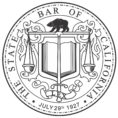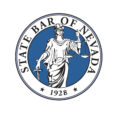Social Media Surveillance: Ethical Boundaries in Investigations

In an age where people chronicle their lives online, social media has become an indispensable resource for investigators. From law enforcement and private investigators to attorneys and insurers, many professionals use social media to gather information about suspects, clients, or claimants. But just because the data is out there doesn’t mean it’s fair game. This intersection of convenience and ethics raises a crucial question: What are the ethical boundaries of social media surveillance in investigations?
The Rise of Digital Investigations
Social media platforms like Facebook, Instagram, X (formerly Twitter), TikTok, and LinkedIn have revolutionized how people communicate, share experiences, and express opinions. In turn, these platforms have become treasure troves of information for:
- Law enforcement investigating criminal activity
- Attorneys gathering evidence for litigation
- Employers vetting candidates or employees
- Insurance companies validating or challenging claims
According to a 2021 report from the International Association of Chiefs of Police (IACP), nearly 90% of police departments use social media in investigations, underscoring its widespread adoption.
What Counts as Social Media Surveillance?
Social media surveillance refers to the monitoring and collection of publicly or semi-publicly available information posted by individuals on digital platforms. It can involve:
- Passive monitoring of public posts
- Deep searches into comment histories and tagged photos
- Use of fake profiles (sock puppets) to access restricted content
- Automated tools or AI-powered scraping software
While technically legal in many jurisdictions, the ethics of how and when this information is gathered, interpreted, and used are increasingly being scrutinized.
The Legal Framework: What’s Allowed?
In the U.S., there is currently no overarching federal law that explicitly governs how private investigators or law enforcement can use social media in their investigations. However, there are still important boundaries:
- Public vs. Private Content: Public posts are generally fair game, but accessing private information without consent (e.g., hacking, coercion) is illegal.
- Terms of Service Violations: Many platforms prohibit fake profiles or data scraping. Violating these terms could result in civil liability or evidence being thrown out in court.
- Fourth Amendment Protections: For law enforcement, constitutional limits apply. Investigators typically need a warrant to access private content, especially when surveillance becomes persistent or intrusive.
For attorneys, ABA Formal Opinion 466 provides guidelines on accessing social media profiles, permitting passive review of public content but forbidding deception or pretexting to gain access to private profiles.
Ethical Considerations: Just Because You Can, Should You?
1. Consent and Transparency
One of the core principles in any ethical investigation is informed consent. While public content may not require permission, engaging with someone under false pretenses to access restricted content—such as sending a friend request under a fake name—is ethically questionable.
Many professional investigators are bound by ethical codes that discourage deceitful practices, even if the law doesn’t explicitly prohibit them. This is especially important in civil litigation, where admissibility of evidence can hinge on how it was obtained.
2. Accuracy and Context
Social media posts can easily be taken out of context. A photo of someone hiking may seem to contradict a disability claim, but without timestamps or clarity, it may not represent current reality. Misinterpreting such posts can lead to confirmation bias or worse, unjust outcomes.
Investigators must tread carefully to verify the authenticity, date, and relevance of any social media content before using it as evidence.
3. Minimization of Harm
Ethical surveillance also involves considering the potential harm that overzealous monitoring might cause. In family law or custody cases, aggressive digging into a party’s personal life can not only destroy trust but also escalate emotional trauma.
In these cases, lawyers and investigators must balance their client’s interest in information with the emotional and reputational risks to the other party—and themselves.
Automation and AI: Ethical Red Flags
Today, many investigations leverage automated tools to gather and analyze social media data at scale. These tools can scrape, archive, and flag content using machine learning.
But this convenience comes with caveats:
- Bias in Algorithms: AI may amplify existing biases in what it flags as “suspicious.”
- Data Privacy Violations: Scraping content can violate platform terms or even user rights, especially if the data is used outside its original context.
- Lack of Accountability: It may be unclear who is responsible when automated systems make mistakes or overreach.
Ethical use of AI in surveillance requires human oversight, transparency about methodology, and respect for user consent and intent.
Industry Guidelines and Best Practices
To ensure responsible social media surveillance, professionals should adhere to recognized ethical standards such as:
- The National Council of Investigation and Security Services (NCISS) Code of Ethics
- The American Bar Association’s Model Rules of Professional Conduct
- Internal guidelines from legal firms and investigative bodies
Best Practices Include:
- Documenting sources and timestamps of content
- Avoiding deception or false identities
- Getting client consent when collecting social media evidence
- Using software that complies with privacy laws and platform terms
Real-World Scenarios
Case 1: Insurance Fraud Detection
An insurer discovers that a claimant posting about chronic back pain is regularly uploading dance videos. This triggers an investigation. However, ethical considerations require that the insurer verify the timeline and context before using the content to dispute the claim.
Case 2: Custody Battle and Online Conduct
In a divorce case, one parent’s aggressive rants about their ex on Facebook are used to challenge their fitness for custody. Here, while the posts are public, lawyers must ensure they do not use this material to vilify the person beyond relevance to the case.
Case 3: Law Enforcement Misuse
A police department uses a fake Facebook profile to join protest groups and monitor organizers. While arguably effective, this tactic may violate free speech rights and platform policies, sparking backlash and potential litigation.
The Future of Social Media Ethics in Investigations
As platforms evolve and more users lock down their privacy settings, investigators are likely to face greater limitations. Legal reforms may also narrow what’s considered acceptable surveillance. On the flip side, courts are beginning to recognize the importance of digital footprints in establishing truth, making ethical collection and presentation all the more crucial.
Privacy advocacy groups, like the Electronic Frontier Foundation (EFF), continue to monitor and challenge unethical surveillance practices, pushing for greater transparency and accountability in digital investigations.
Drawing the Line
In the digital age, information is everywhere—but ethics must govern how we use it. Social media surveillance can be a powerful tool in investigations, but it must be wielded responsibly. By respecting privacy, avoiding deception, ensuring accuracy, and being transparent about methods, investigators can use digital evidence to support justice—not subvert it.










